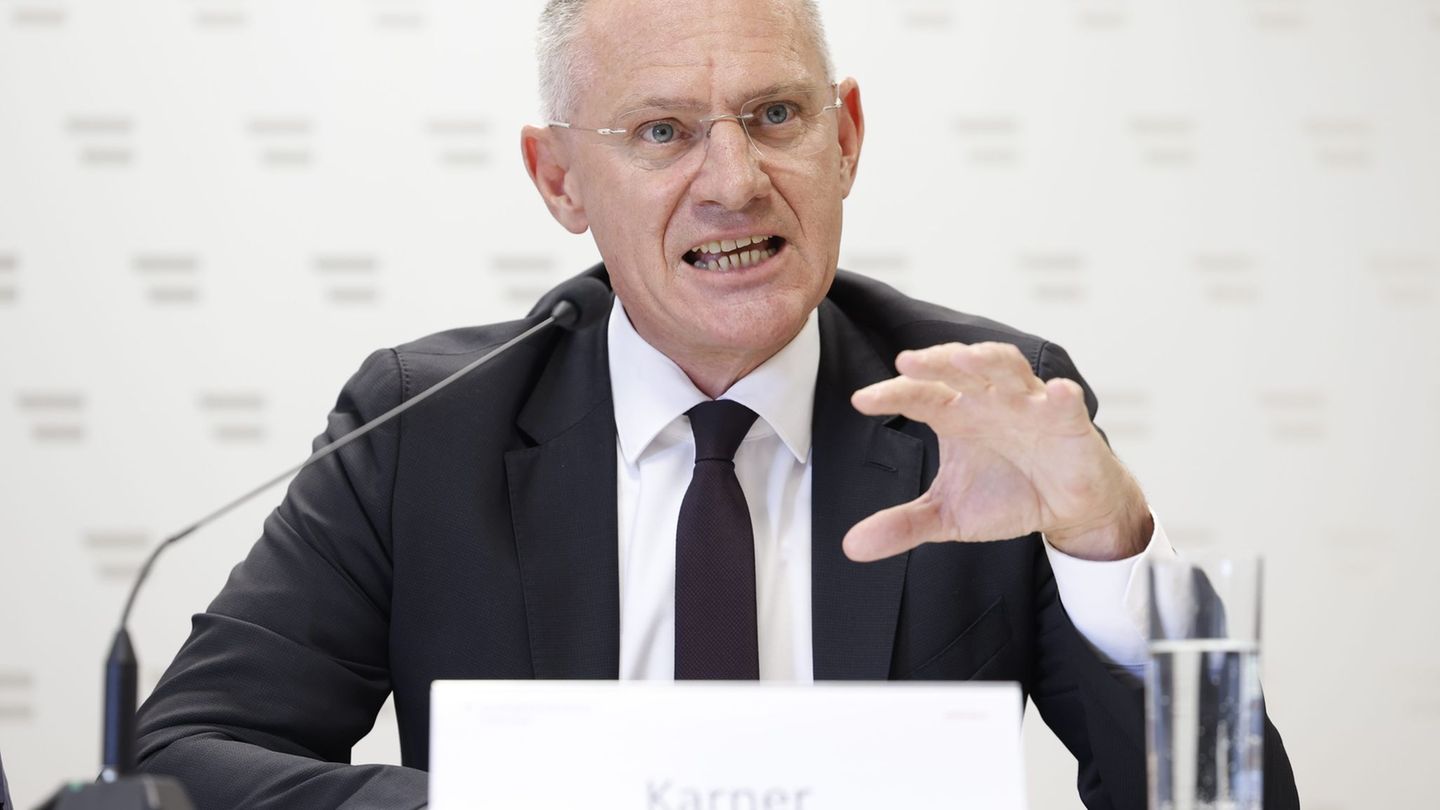The interior ministers of the EU are making a new attempt today to initiate a reform of the European asylum system. The proposals that are on the table are highly controversial.
Federal Interior Minister Nancy Faeser warned that the EU meeting on a major reform of the European asylum system would fail.
“It is important that we get results now. Otherwise, more national isolation can be expected,” the SPD politician told the editorial network Germany before the meeting in Luxembourg. It is about saving the Europe of open borders. If the EU’s external borders were not reliably controlled, the Schengen system would be in danger, explained Faeser. This was created to enable border-free travel within Europe.
Warning against compromise “at any price”
The group of German Greens in the European Parliament, on the other hand, warned against a compromise “at any price”. The plans for so-called border procedures would be at the expense of human rights and would be ineffective, spokesman Rasmus Andresen told the newspapers of the Funke media group. Children in particular should not be kept in mass camps for months.
Left-wing MEP Cornelia Ernst was more critical. She described the reform plans as “a plea for a Europe of fences and walls” which is about de facto abolishing the right to asylum in Europe.
At today’s meeting of interior ministers, a new attempt is to be made to initiate a reform of the European asylum system. On the table are drafts for legal texts that the current Swedish EU Council Presidency has drawn up on the basis of proposals from the EU Commission. In particular, they provide for a much more rigid approach to dealing with migrants with no prospects of staying.
In addition, solidarity with the heavily burdened member states at the EU’s external borders should no longer be voluntary in the future, but mandatory. Countries like Hungary that do not want to take in refugees would be forced to pay compensation.
Debate about families with children
It was unclear until yesterday evening whether a sufficiently large majority of countries would support the legislative proposals at the meeting. According to diplomats, a crucial question is how the German coalition government will position itself. At the urging of the Greens, she had demanded in the preliminary talks for the meeting of interior ministers that families with children be exempted from the new, strict border procedures. However, a very large majority of the other states vehemently rejected this because they see such a regulation as a deterrent.
The current proposal for the new border procedures provides that people arriving from countries that are considered safe will in future come to strictly controlled reception facilities after crossing the border. There, it would normally be checked within twelve weeks whether the applicant has a chance of asylum. If not, it would be sent back immediately.
Faeser: “The right to asylum will not be affected”
Faeser emphasized that these procedures “do not apply to people who have fled torture, war and terror”. It’s about fast and fair asylum procedures for those who are unlikely to need protection in the EU. In general, the following applies: “The right to asylum is not affected. When people apply for asylum here in Europe, they must receive a fair, constitutional procedure. Each case must be examined individually.”
According to diplomats, a vote could also fail due to a restriction of a rule demanded by the federal government that would enable the deportation of initially rejected asylum seekers to countries that are not their home countries. It would provide that deportation is only possible if those affected have clear ties to those countries. However, a majority of EU countries reject this as counterproductive.
The role of Italy
It is also unclear whether Italy’s planned regulations for more solidarity go far enough. Getting the asylum reform going without the support of the government in Rome is considered to make little sense, since most migrants are currently arriving in the country and the EU is dependent on Italy then adhering to the new rules. According to the UN refugee agency, more than 50,000 migrants who crossed the Mediterranean have been registered in Italy this year. Most of them came from Tunisia, Egypt and Bangladesh and therefore had almost no prospects of being able to stay legally.
A prerequisite for a decision on the plans is that 15 out of 27 member states vote in favor, whereby these must together make up at least 65 percent of the total population of the EU. If a sufficiently large majority does not emerge, the negotiations would have to be continued again.
A long process
If the EU Council of Ministers does not take a decision by the summer break, there is little chance of getting the reform project across the finish line in the foreseeable future. The reason is that there must also be negotiations with the European Parliament about it. These could take months – then there may not be enough time to complete the project before the European elections in June 2024.
EU Parliament President Roberta Metsola told the “Welt”: “We cannot afford to lose time, possibly even years.” All EU countries now need a constructive approach and a decision as quickly as possible.
Source: Stern
I have been working in the news industry for over 6 years, first as a reporter and now as an editor. I have covered politics extensively, and my work has appeared in major newspapers and online news outlets around the world. In addition to my writing, I also contribute regularly to 24 Hours World.




